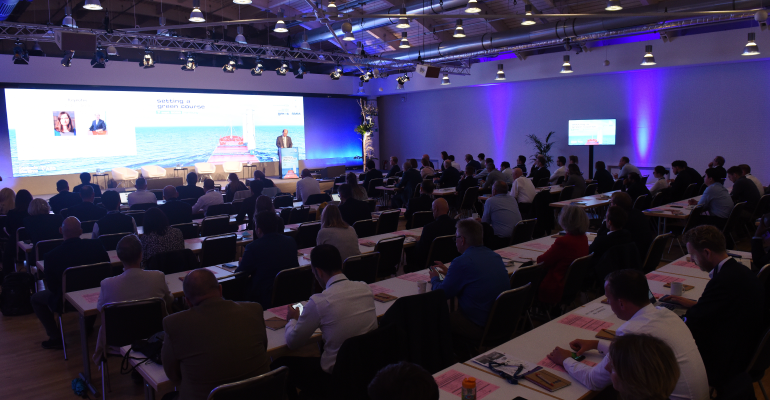Speaking at the global maritime environmental congress (gmec) at SMM 2022, Peter Wolf, Managing Director, CMA CGM (Germany) likened the transition to zero carbon fuels to training for a marathon. First you learn to walk, then run, and then continue to train and condition up to marathon distance.
“We see LNG as, as the first step of conditioning,” said Wolf, with further decarbonisation to come in the future from the use of bioLNG and synthetic LNG.
“It is it is very, very long way we have to go. We have a big number of people working in our R&D department in order to develop [green technology],” said Wolf.
CMA CGM has vessels from small coastal feeders to large megaships fuelled by LNG, with even more LNG ships on order. Those ships offer carbon emission reductions today and have a clear pathway to even lower emissions through biofuels and synthetic fuels in the future, without the need for retrofit.
CMA CGM’s foray into LNG has involved many partnerships, and Torgeir Sterri, DNV, Regional Manager West Europe said that he believes class has an important role in bringing stakeholders together to look at and develop new solutions.
Sterri said the main challenges in decarbonisation are not technical, but availability of fuels and infrastructure.
“If we can get availability and infrastructure working, we will find technical solutions,” said Sterri, using the example of CMA CGM and other shipowners breaking the chicken and egg situation in the LNG bunkering sector by ordering ships to prove demand.
The future will involve more solutions to decarbonise shipping, and development of those solutions is accelerating. Risk-based approaches to prevent accidents is essential to avoid slowing down the development of new fuels and infrastructure.
Wolf said that to bunker a 23-25,000 teu ship in Rotterdam takes 18,000 cu m of LNG. “I wonder whether we have any other fuel available, apart from the previous fuels, to that large an extent?”
Copyright © 2024. All rights reserved. Seatrade, a trading name of Informa Markets (UK) Limited.
Add Seatrade Maritime News to your Google News feed.  |

